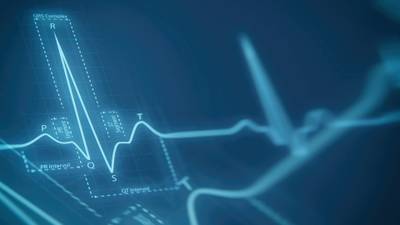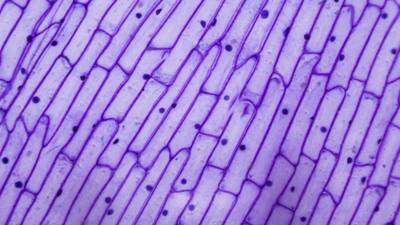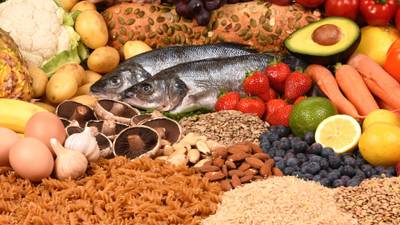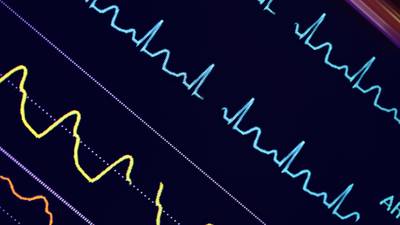How does food affect human health, and the prevention and management of diseases?
Gain the knowledge that underpins the study of human nutrition and metabolism.
- Learn from scientists working at the University’s Rowett Institute, one of Europe’s most prestigious nutrition research centres.
- Access our unique expertise and find out first hand what’s happening in the world of nutrition right now.
Our online Human Nutrition and Metabolism course is designed for wide appeal. It’s an ideal refresher for graduates in nutrition. As a scientist, it will help you move towards a career in nutrition. And it’s CV-boosting professional development for the health professions, industry and government agencies.
Credit-bearing or CPD?
You can choose between two versions of this course:
- Credit-bearing – includes assessments, which allows you to earn credits towards an MSc.
- Continuous professional development (CPD) – no assessments but carries zero credits.
Other than assessments, the course content and delivery are exactly the same for both versions of the course.

Build credits towards a Masters degree
The credit-bearing version of this course is part of:
You can use the credits you earn on this short course towards either of these MSc qualifications.
What you’ll study
Poor nutrition is a public health problem facing both developed and developing nations today.
In this course, you’ll:
- learn to apply the scientific principles of nutrition to have a real, positive impact on public health
- focus on the basic biochemistry and physiology relevant to human nutrition, to understand how the body works and how it responds to the food we eat
- studying metabolism
- gain detailed knowledge of the digestion, absorption and metabolism of carbohydrates, protein, fat, alcohol, vitamins and minerals, as well as energy balance and metabolism.
Increasing your knowledge of what constitutes ‘healthy eating’ will give you the solid science to debunk popular myths, diet fads and misunderstandings commonly propagated today around the role of nutrition in maintaining health and preventing and managing disease.
By the end of this course, you’ll be able to…
-
Describe how the human body responds to the food and nutrients we eat.
-
Explain how methods of food production and preparation influence the nutritional quality of the diet.
-
Communicate the energy balance, energy expenditure and energy requirements of the human body.
-
Recognise strengths and weaknesses in research methods, enabling you to understand the science behind nutritional information.
Learn with the Rowett Institute
For over 100 years, the Rowett has played a major role in informing UK government health policy and establishing the link between diet and health.
How you’ll study
Online learning
This distance learning Nutrition and Metabolism course is delivered flexibly, 100% online.
You can learn with us anywhere in the world, no student visa required, and manage your study hours to suit you.
Your teaching
This course is taught at Masters level by experienced nutrition researchers and academics.
Teaching is delivered through MyAberdeen, our online Virtual Learning Environment (VLE). It holds all the materials, tools and support you’ll need in your studies. Take a look around MyAberdeen.
You can access your learning materials on computer, smartphone and laptop, 24 hours a day. You’ll find a range of resources available, including:
- podcasts of lectures
- seminars
- videos
- study notes
- discussion boards with your tutors and peers
- the online resources of our award-winning Sir Duncan Rice Library.
Through the discussion boards, we’ll encourage you to question accepted wisdom and interact with your online colleagues to develop fresh ideas.
Credit-bearing course assessment
The credit-bearing course is assessed entirely online via:
- weekly multiple-choice quizzes
- two class tests (each worth 50% of your mark).
You will receive feedback on all your assessments.
Your feedback will include detailed information about correct answers for quiz responses. Extensive feedback will be written or audio-recorded and highlight the areas that you need to focus on to improve your understanding.
CPD course assessment
There are no compulsory assessments for the CPD version of this course.
You’ll be able to gauge your progress as you work through the course via a series of online self-assessments. You can retake these as often as you like.
The course totals approximately 150 hours of study and assessment time. That’s around 10 – 15 hours per week.
This is an indicative guide to the time required for a typical student at this level to achieve the learning outcomes. This includes time for independent study, as well as teaching and assessments.
You can largely set your own study hours each week to cover the materials. MyAberdeen is available 24/7, so you can log in and study when it suits you.
Activities at fixed times
There may be some activities scheduled for fixed times. This could include coursework and assessments with deadlines, or online meetings with your tutor. Otherwise, you can access and work through the course at your convenience.
Our first-class support structure will ensure that you aren’t alone in your studies.
You’ll have contact with your coordinator via email, MyAberdeen, Microsoft Teams, or phone. You can use social media and discussion boards to chat with your fellow students too.
We provide a wide range of services to support you in your studies and beyond:
- Careers and Employability Service
- Disability support
- IT support
- Library support
- Student Support Service – help with finances, wellbeing and non-academic issues
- Student Learning Service – study support, with advice sessions available
- Aberdeen University Students’ Association (AUSA) – run by students for students
- Toolkit – clever apps and free training that can make your study life easier
Wherever you are in the world, you’ll feel part of our very special Aberdeen learning community.
Your course coordinator

Dr Fiona Campbell
Fiona is a principal investigator based at the Rowett Institute. She leads our MSc in Human Nutrition. Fiona’s research focuses on advanced glycation end-products (AGEs) and how dietary AGEs contribute to conditions such as type 2 diabetes and dementia.
View Fiona’s profileWhere this will take you
Towards a Masters
You’ll earn 15 credits at Masters level (SCQF Level 11) with this course. You can use these credits towards our:
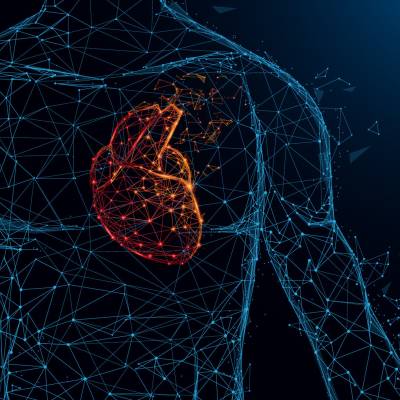
Masters in Applied Health Sciences
Fast-track your career in healthcare with our uniquely flexible MSc Applied Health Sciences. Study 100% online or combine with on-campus courses at our Foresterhill Health Campus. 10% discount for NHS staff.
View MSc Applied Health Sciences
Masters in Clinical Nutrition
Join an online Nutrition degree accredited by the Association for Nutrition. Study the link between diet and health, and how issues of over and undernutrition affect populations today. 10% discount for NHS staff.
View MSc Clinical NutritionCertificate of completion
If you choose the CPD version of the course, you will not receive any credits.
However, you will receive a digital certificate of completion.
CPD hours
Your employer or professional institute may recognise this course for CPD hours. Talk to your employer or institute to find out more.
Build your learning with more short courses
We have a range of online nutrition and healthcare courses you can use to build your skills.
Many carry credits you can build up into postgraduate qualifications, including Masters degrees:

Free career support
Access our free careers service while you study.
- 1:1 appointments
- CV checks
- Interview prep
- Job opportunities
Why study nutrition online with the University of Aberdeen?
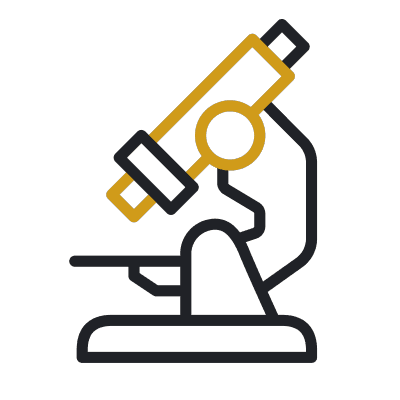
Pioneering research
Be part of a university leading the way in nutrition, women’s health, infection control and clinical scanning, transforming lives and medical practice around the world.

Unique expertise
Learn from tutors and scientists at the forefront of nutrition studies, publishing research into gut health, metabolism and obesity.

NHS and alumni discounts
NHS staff get 10% off this online course. University of Aberdeen alumni get 20% off.
Entry requirements
Entry requirements
We welcome students from all over the world.
This course has no formal entry requirements. You do not need to provide proof of your qualifications.
But you do need to check the entry guidance above to understand the level of teaching delivered, to decide if this course is right for you.
If you do not have qualifications from the UK, check the equivalent teaching level for your country.
Visa requirements
You do not need a student visa to study online with us.
English language requirements
Teaching is delivered in English.
You do not have to provide proof of your English language skills to join this course. But we want to make sure that you can use English well enough to study successfully.
Recommended level of English
This course uses our Postgraduate Higher level of English language proficiency.
These are our Postgraduate Higher requirements, and these are minimum scores.
IELTS Academic, IELTS UKVI Academic, or IELTS Online (not IELTS Indicator or IELTS General Training)
- 6.5 overall
- 5.5 for listening and speaking
- 6.0 for reading and writing
TOEFL iBT or TOEFL iBT Home Edition
- 90 overall
- 17 for listening
- 21 for reading
- 20 for speaking
- 21 for writing
- TOEFL DI code is 0818
Cambridge English: B2 First, C1 Advanced, or C2 Proficiency
- 176 overall
- 162 for listening and speaking
- 169 for reading and writing
LanguageCert Academic / LanguageCert Academic SELT
- 70 overall
- 60 for listening and speaking
- 65 for reading and writing
Oxford ELLT Digital – English Language Level Test Online
- 7.0 overall
- 5.0 for listening and speaking
- 6.0 for reading and writing
PTE Academic (online test not accepted)
- 62 overall
- 59 for listening, reading, speaking and writing
Skills for English: SELT
- B2 pass with merit
Duolingo – tests taken from 1 July 2024 onward
- 120 overall
- 95 for listening and speaking
- 105 for reading and writing
University of Aberdeen English Pre-sessional Programme (PSE)
- Pass
- Valid for one year. Refresher can be offered if out of date
Pre-sessional academic English preparation programmes undertaken at other UK universities
- Pass at an equivalent of 6.5 (C1)
- B2 in all four skills
- Certification must be within one year prior to the start of your course
For more information about language qualifications see our English Language Requirements page.
You will need access to:
A computer (PC, laptop or Mac) with an up-to-date operating system
Most teaching materials are smartphone- and tablet-friendly. But we recommend a proper laptop or desktop for completing assignments comfortably.
Reliable internet access
We recommend:
- a wired connection
- a minimum download speed of 2 Mbps so you can take part fully in live sessions.
Speakers or headphones
- We recommend a headset with built-in microphone and earphones if you’re likely to study in an environment with background noise.
- A webcam is optional, but you may like to use one for some interactive sessions.
Software
We’ll give you access to Office365 applications. This means you can use online versions of Microsoft Word, Excel, PowerPoint and OneDrive and install these programs on up to five personal devices.
If your course requires specialist software, we’ll provide you with access to this and a licence that lasts throughout your studies.
See our detailed IT requirements for more information.
When you study with us, you can expect a first-class support structure so that you’re never alone in your studies.
But learning online does mean you have to motivate yourself and manage your own time.
Your most important commitment will be time – the time to work through, reflect on and understand your teaching materials.
Before you start a course that involves a high degree of independent study, we recommend looking at the time you will be able to devote to your studies each week:
- Be realistic
- Create a weekly schedule as a guide
If you have any questions about studying online, get in touch with our friendly team. We’re here to help.
Fee payment
Your course fee needs to be paid in full before you start your course.
We accept payment via Visa Debit, Visa Credit and Mastercard.
Ways to save
You may be able to get help funding this course via:
- discounts – if any discounts are available for this course, they’ll appear in the section below
- employer sponsorship – we accept full and partial fee payments from sponsors.
Find out more about funding options.
Student card
All our students are entitled to a University of Aberdeen student card. This gives you access to a range of student discounts around the city and online.
There are no formal entry requirements for either the credit-bearing or CPD version of this course. You decide if the level of learning is suitable for you.
Teaching is delivered at Masters level. At this level, you’d usually have at least:
- a 2:2 UK undergraduate degree (or equivalent) in Biological Sciences or Life Sciences, or
- relevant experience that supports this level of study.


